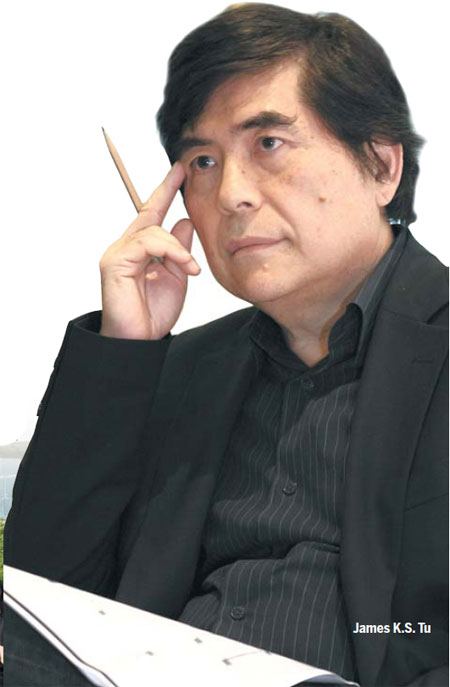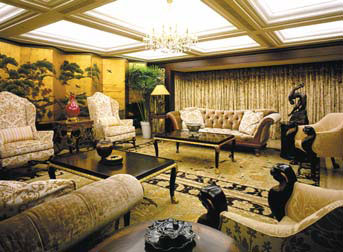Designer brings dreams to life
Updated: 2013-04-07 07:14
By Li Fusheng(China Daily)
|
|||||||


|
Pictured here is one of Tu's interior designs. |
For James K.S. Tu, making homes beautiful and comfortable has been a lifelong ambition.
Founder and president of Audi International Interior Design Co Ltd, Tu built the Taipei-headquartered company into a leading player in markets on both sides of the Straits through his knack for design and continuous pursuit of excellence.
A born artist, Tu has had a rich interest in painting since childhood, which helped him succeed as a student of architecture in Taiwan-based Chung Yuan Christian University.
"My classmates would complain about their design assignments, saying they are too difficult. But I found them easy for me, and I could get good results without too much efforts," Tu recalled.
Tu's design talent enabled him to venture into the design industry when he was only a sophomore. After several years of work, he went back to his alma mater for a master's degree in interior design to further enrich his knowledge and sharpen his skills as a designer.
Tu established his company in 1986. Since he does not drink or smoke, which are popular means of socializing in Chinese culture, his family members and friends thought there was little chance his business would succeed.
Unexpectedly, the little-known startup forged ahead rapidly."The fierce competition in our industry lies in designs," said Tu.
"I can beat my competitors as long as property owners allow me to show them my designs." Dedicated to the industry, he and his team have always been driven to come up with the best possible solution for any property owner.
This attitude has won the company a good reputation and more clients as a result. His popularity also has a lot to do with his respect for property owners.
"You are decorating people's homes, so you have to respect their private domain. You have to make some compromises based on their personalities, tastes and likes," Tu said.
"Our mission is to help property owners to fulfill the dream (of having a comfortable home). If our designs don't appeal to them, they are not successful ones no matter how beautiful they are."
Referring to interior design as a service industry, Tu said its essence is compromise and equilibrium.
Citing the example of training his team, he said designers should receive architectural training to improve logic and at the same time take interior design lessons to sharpen their aesthetic sense.
"A first-class designer should be capable of treading a careful path between logic and aesthetics to come up with the best designs," he said.
Focusing on the property market's high-end niche, Audi has offered interior designs to a considerable proportion of Taiwan's luxury properties.
The one that helped catapult the company to instant fame is Hung Sheng's Palace.
Branded as Taipei's first luxury property, it actually did not sell well until Audi was invited to do an interior design for its demo room. After an overall consideration of the property, Tu decided on the neo-classical style and chose Baker, a well-known US brand as its furniture provider.
Thanks to cost-effective decisions, the first demo unit sold for less than 30 million new Taiwan dollars ($1 million).
His design immediately swept the property developer and potential buyers off their feet, winning him and his team a good reputation in the field.
"For all cases, we choose top-level materials and work hard to pursue excellence. Besides, we have experienced designers who have a good command of such things as sizes and proportions, aesthetic concepts, materials of different textures as well as application of colors," Tu said.
"That is why our designs can match luxury houses and their owners."
In 2008, Tu established a branch in Shanghai and started to make inroads in the mainland property market.
Though the company still receives the bulk of its orders from Taiwan, Tu said he plans to shift the focus of his company to the Chinese mainland.
"The Chinese mainland is rising as an economic power. And we want to do something on this grand stage," he said.
Tu also plans to extend the spectrum of his target market to include ordinary homes."We can also design a comfortable home with less expensive materials, helping more people to fulfill their dreams of a better living environment and a brand new life," he said.
lifusheng@chinadaily.com.cn
(China Daily 04/07/2013 page8)
